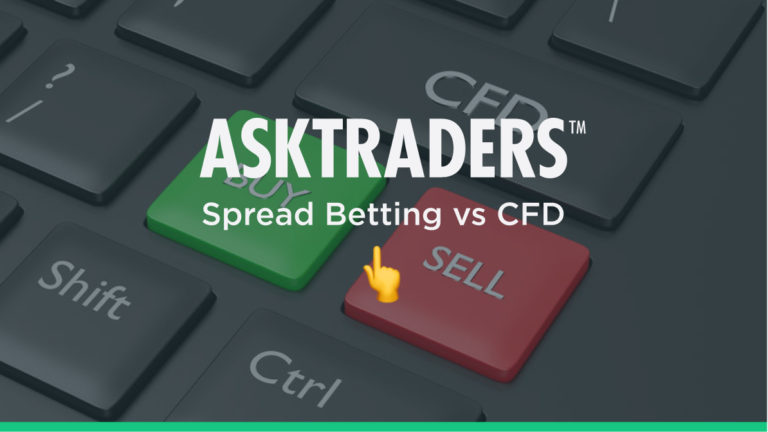
Consequently, leveraged products are becoming increasingly popular. With a small deposit that is just a fraction of the value of the trade, you could buy into a deal you wouldn’t otherwise be able to touch and make big gains. Of course, the losses would be similarly magnified. The two most popular leveraged products are CFDs (contracts for difference) and spread betting. So what are the differences when you compare CFD and spread betting?

Brief explanation of spread betting and CFDs
Spread betting and CFDs may be similar on the surface, but there are some differences. In spread betting, you place money on whether a market will go up or down. If you as an investor believe the market will go up, you position your investments with the purchase price, not the selling price. Spread betting companies then provide these buy and sell prices to investors and make their money off the fees they earn.
In CFDs, you do not take a position on the market, but on an underlying asset. It could be currency (as in the case of forex trading, a kind of CFD), minerals, oil, agricultural products or anything else. Both CFDs and spread betting are therefore derivative products. The value is derived from an underlying asset.
When you trade CFDs, you are betting on whether the value of that underlying asset will increase or decrease in the future. As should be evident by now, you can take both long or short positions. When you take a long position, you’re betting the value will rise; when you go short, you are betting it will decrease. Whatever position you take, you expect that there will be a difference between your opening and closing position, and it is this difference that is responsible for your profit.
In spread betting, the difference between the purchase price and sell price quoted to you by the spread betting company is the spread. When it comes to the movement in price of the underlying asset, this is measured in basis points. As with CFDs, you can buy either long or short.
CFDs and spread betting are so similar – what are the differences?
There is no expiration on a CFD, whereas there is with spread betting. The latter has set expiration dates. Spread betting is an over-the-counter (OTC) transaction as it can be completed via a broker. However, with CFD trades, you have direct market access even though you may choose to go through CFD brokers who provide you with tools and insights. This has the advantages of transparency and being able to complete a trade simply without third-party assistance.
The other difference relates to fee structures. With CFD trading, commissions and fees are applicable. With spread betting, on the other hand, you are the investor and will either have money owed to you in the case of a win or will need to pay money to the company if you lose.
As for profits, you will net the profit of your CFD closing position after the opening position and fees have been deducted. In contrast, profits for spread bets will equal the difference in basis points, multiplied by the dollar amount. This dollar amount would have been negotiated in the initial bet.
Ultimately, you can make 100% gains in both spread betting and CFDs, but you can also make disastrous losses of 100%. It is important to research trading strategies and forex trading tips first, proceed cautiously until you are more experienced, and use sensible mechanisms such as stop losses to help decrease the risk involved.
People Who Read This Also Viewed:




